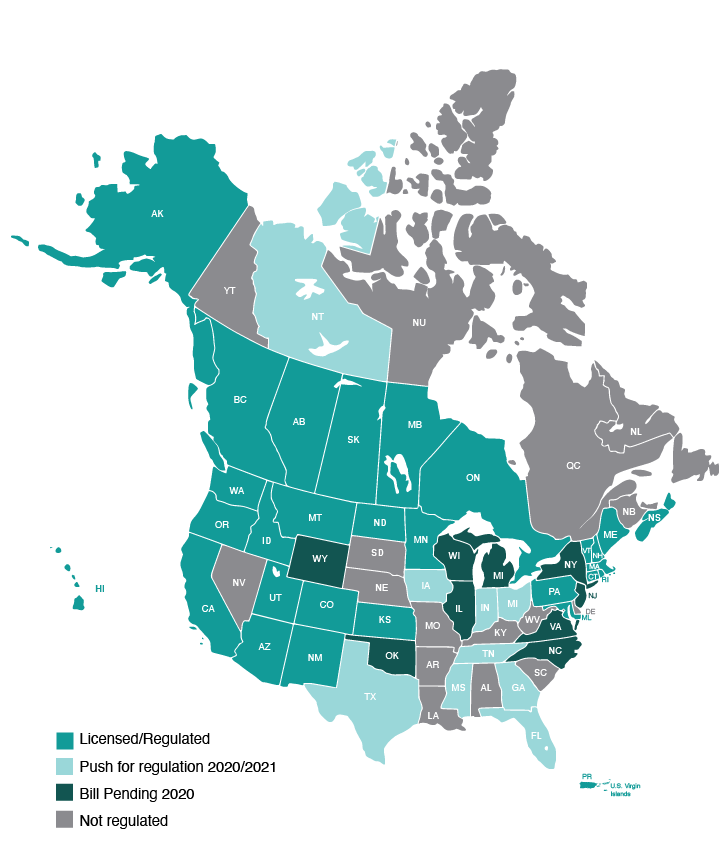Are you considering pursuing a degree in Naturopathic Medicine? Naturopathic Medicine is a distinct primary health care profession that combines the traditions of natural healing with the rigors of science and evidence-based practice.
You may be wondering, what will you gain once you have earned this degree? Well for starters, a job satisfaction survey by AANMC states that 74% of naturopathic physicians reported satisfaction with their careers.
This post highlights what a Doctor of Naturopathic Medicine is, what they do, and the “return on investment” (ROI) that a Naturopathic Degree can provide.
What is a Doctor of Naturopathic Medicine?
Naturopathic Doctors (NDs) are trained as primary care physicians who diagnose, treat, and prevent illnesses. NDs have earned a naturopathic medicine degree from an accredited university. They are highly trained diagnosticians and focus on the least invasive and least toxic therapies to address underlying causes of illness and to support the body’s own ability to ward off and combat disease. Naturopathic Doctors address chronic health issues, such as diabetes, obesity, asthma and heart disease, using modern medical science and natural therapies. Treatment modalities can include nutritional counseling, botanical medicine, homeopathy, hydrotherapy, and minor surgery.

What is a Degree in Naturopathic Medicine?
In order to become a naturopathic doctor, you must earn a Naturopathic Medicine degree from a program accredited by The Council on Naturopathic Medical Education (CNME). Only students and graduates from accredited or candidate naturopathic programs are eligible to sit for the NPLEX, the exam required to qualify for a naturopathic doctor license.
There are currently six accredited schools in the United States and Canada, including National University of Health Sciences (NUHS) in Lombard, Illinois.
These programs must meet rigorous standards to provide valid medical degrees. Online ND programs are not accredited – thus, those programs do not qualify individuals for licensure.
Is a Naturopathic Doctor the Same Thing as a Homeopathic Doctor?
A naturopathic doctor may use homeopathic methods in their treatment regimens, but a naturopathic doctor and a homeopathic doctor are not the same thing. Homeopathic medicine is based on the idea that extremely minute concentrations of a substance that causes symptoms of a disease could cure those experiencing similar symptoms.
Meanwhile, naturopathic doctors will use many different modalities and treatments to holistically care for the patient. This will often involve homeopathic treatments, but homeopathy is just one tool in a naturopathic doctor’s toolbox.
Students in the Doctor of Naturopathic Medicine program at National University of Health Sciences can take advantage of additional homeopathy training, including a rotation at the Center for Integral Health.
Ways You’ll Get ROI with a Naturopathic Medicine Degree
Here are several ways getting a degree in naturopathic medicine will grant you an excellent return on your investment.
Flexibility in job options and work environment
A naturopathic medical education provides the foundation for many rewarding career choices. Naturopathic doctors currently practice throughout the United States and are employed in a variety of different professional settings, including private practices, multidisciplinary clinics, hospitals, pharmacies, community health centers, insurance companies, supplement companies, laboratories, and other organizations related to health care.
Upon graduating from an accredited institution, and passing the national board exams, students can begin practicing immediately. While many naturopathic physicians focus on general medicine, such as treating colds, the flu, or asthma, hypertension, diabetes, etc., others may decide to have a more specialized practice. These individuals may focus solely on illnesses such as heart disease, autoimmunity, or endocrinology, or on certain patient populations, such as women’s health, pediatrics, sports medicine, esthetics, addiction medicine, pain management, etc.
Naturopathic doctors may also choose to go into the academic field and become faculty at educational institutions such as universities or community colleges, at the undergraduate or graduate levels. In addition to teaching, they can also choose to focus on research, progressing the field of naturopathic medicine further. There are also those who choose to focus on the management side of health care, non-profit leadership, or corporate and/or public health.
Excellent job growth and career outlook
More and more states are beginning to recognize the value of naturopathic medicine. At this time, there are 22 states, plus the District of Columbia, and the U.S. territories of Puerto Rico and the Virgin Islands, that currently license naturopathic doctors.
Many other states, including Illinois, have ND licensure pending in their state legislatures. However, naturopathic doctors aren’t limited to having successful careers in just licensed states. Many NDs have been able to find success in pre-licensed states, such as Illinois, partly due to the growing popularity of integrative practices.

Furthermore, career prospects for naturopathic doctors are growing each day as more people look for treatments that will supplement or replace conventional medicine. The increasing interest in wellness practices and therapies, a growing desire for healthful aging techniques, and a renewed focus on prevention and self-directed lifestyle changes are all positive indicators for ND careers.
In fact, according to the National Center for Complementary and Integrative Health, nearly 4 in 10 Americans use some form of complementary and alternative medicine treatment. Responding to this consumer demand, more hospitals and other healthcare institutions continue to incorporate natural treatments in their service offerings.
People may not realize it, but many naturopathic doctors can be found working alongside medical doctors at health facilities. In fact, 28 prominent health systems, hospitals, and cancer treatment centers have one or more licensed naturopathic doctors on staff at their facilities.
According to the Bureau of Labor Statistics, eleven of the top twenty fastest growing occupations are in health-related fields. Naturopathic medicine is expected to grow rapidly and has been identified as a “Bright Outlook Occupation” by O*NET.
The Explore Health Careers website reports that: “The prospects for making a prosperous living in this field are excellent. Naturopathic medicine continues to gain acceptance and recognition throughout the United States and Canada.”
Having the satisfaction of helping and treating patients with natural approaches
In this era of the growing opioid epidemic, naturopathic physicians are able to positively impact their patients’ health through natural, non-invasive, and less toxic therapies. This means NDs are at the forefront of medicine fulfilling the need for natural health care options in our healthcare system today.
NDs take their time to learn a patient’s whole history and do not simply diagnose a condition based upon a patient’s current symptoms; they also work to address the underlying causes of illness and to support the body’s own ability to ward off and combat disease. As a result, they generally spend more time with their patients.
In fact, naturopathic physicians spend more than twice as much time with patients as conventional physicians at each visit (40-90 minutes vs. 5-14 minutes), permitting more time to discuss patients’ concerns. This additional patient time allows for increased satisfaction among both patients and physicians.
Naturopathic doctors are also typically able to set their own hours depending on the number of patients they’d like to see, enabling them to maintain a better work-life balance.
Salary security and the ability to pay back your loans
Going to graduate school for a medical degree is a big investment that requires both time and financial resources. It is important to know that you will be able to earn a good living as well as pay off your student loans.
The latest AANMC survey of over 1,200 NDs showed that the naturopathic medicine salary of an established ND in the USA working full-time is about $95,642. These earnings can vary depending on several factors including: locations and region; type of clientele served; fee structures; willingness to work with insurance carriers; business objectives; and marketing and networking efforts. In addition, the survey also found that 77% of graduates found employment related to their ND designation within 6 months.
Another survey from AANMC also indicated that earning another degree in addition to the ND degree can boost earnings. This is a distinct advantage offered at National University’s Lombard, Illinois location, where students have the opportunity to earn degrees in several additional integrative medicine disciplines, including: chiropractic medicine, acupuncture, oriental medicine — all on one campus.
Doctor of Naturopathic Program at National University of Health Sciences
National University trains students to focus on treating the individual rather than the disease, and to look for underlying imbalances to determine naturopathic treatment modalities best suited for the patient. You’ll be uniquely prepared for the real world of health care today through learning in our integrative medicine environment. You’ll graduate with the skill and confidence you need to not only practice, but to succeed and excel as a naturopathic physician.
{{cta(‘e2bbb13c-0841-4021-80f7-62bf3f520a39’)}}




0 Comments